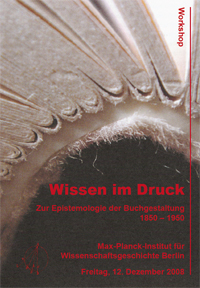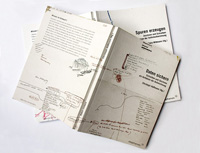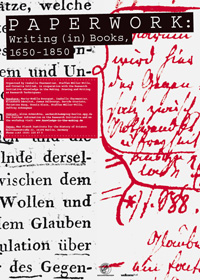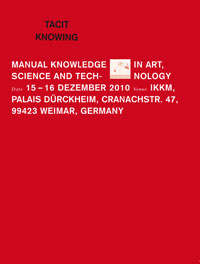
. . . . . . . . . . . . . . . . . . . . . . . . . . . . . . . . . . . . . . . . . . . . . . . . . . . . . . . . . . . . . . . . . . . . . . .
. . . . . . . . . . . . . . . . . . . . . . . . . . . . . . . . . . . . . . . . . . . . . . . . . . . . . . . . . . . . . . . . . . . . . . .
. . . . . . . . . . . . . . . . . . . . . . . . . . . . . . . . . . . . . . . . . . . . . . . . . . . . . . . . . . . . . . . . . . . . . . .
›Materialprobe‹ bezeichnet eine Serie von Kolloquien, die wir gemeinsam mit den Mitgliedern unseres Netzwerkes an wechselnden Orten durchführen. Im Mittelpunkt dieser Arbeitstreffen stehen Präsentationen von Fallstudien aus dem Zusammenhang der Forschungsinitiative, die exemplarisch und materialnah jeweils ein Feld oder einen Modus des forschenden Schreibens und Zeichnens untersuchen. Die ›Materialproben‹ bieten die Gelegenheit unterschiedliche Herangehensweisen an das Material vorzustellen und gemeinsam die methodische Erschließung und theoretische Gegenständlichkeit von ›paper tools‹ zu diskutieren.
. . . . . . . . . . . . . . . . . . . . . . . . . . . . . . . . . . . . . . . . . . . . . . . . . . . . . . . . . . . . . . . . . . . . . . .
. . . . . . . . . . . . . . . . . . . . . . . . . . . . . . . . . . . . . . . . . . . . . . . . . . . . . . . . . . . . . . . . . . . . . . .
Unter dem Titel ›Nachlese‹ veranstalten wir in unregelmäßigen Abständen eine Lektüregruppe, die Neuerscheinungen und klassische Texte zum Thema der Forschungsinitiative gemeinsam mit ihren Autoren und Autorinnen bespricht.
. . . . . . . . . . . . . . . . . . . . . . . . . . . . . . . . . . . . . . . . . . . . . . . . . . . . . . . . . . . . . . . . . . . . . . .
. . . . . . . . . . . . . . . . . . . . . . . . . . . . . . . . . . . . . . . . . . . . . . . . . . . . . . . . . . . . . . . . . . . . . . .
Wissenschaftskolleg zu Berlin, 19. März 2008
In Zusammenarbeit mit Rüdiger Campe (Yale University) wollen wir uns einen Überblick über den Begriff des Verfahrens im Verwendungszusammenhang von Philosophie, Literaturwissenschaft, Technik und Rechtswissenschaft verschaffen. Beabsichtigt ist, den Verfahrensbegriff als ein Werkzeug in der Analyse kultureller Hervorbringungen konzeptionell zu schärfen.
. . . . . . . . . . . . . . . . . . . . . . . . . . . . . . . . . . . . . . . . . . . . . . . . . . . . . . . . . . . . . . . . . . . . . . .
. . . . . . . . . . . . . . . . . . . . . . . . . . . . . . . . . . . . . . . . . . . . . . . . . . . . . . . . . . . . . . . . . . . . . . .
Max-Planck-Institut für Wissenschaftsgeschichte, 12. Dezember 2008
 Die von Christof Windgätter konzipierte Veranstaltung findet in Kooperation mit der Forschungsinitiative »Wissen im Entwurf« statt, deren Perspektive auf das Schreiben und Zeichnen sie durch einen Blick auf die Erscheinungsweise von Drucksachen ergänzt. Anhand konkreter Materialien und Beispiele stellt sich der Workshop die Frage nach der Bedeutung gestalterischer Aspekte von Büchern, Journalen und Zeitschriften für die Hervorbringung wissenschaftlichen Wissens. So wird Gedrucktes nicht mehr nur und vor allem unter gewerblich-distributiven, politisch-sozialen, ästhetisch-bibliophilen oder technisch-instrumentellen Gesichtspunkten betrachtet, sondern es rückt die epistemische Funktion des jeweiligen Textäußeren in den Vordergrund: von typographischen Merkmalen, Formatfragen und Farbgebungen über Umschlaggestaltungen und Titelblätter bis zu Reihenprofilen, Markenzeichen oder Präsentationsmedien.
Die von Christof Windgätter konzipierte Veranstaltung findet in Kooperation mit der Forschungsinitiative »Wissen im Entwurf« statt, deren Perspektive auf das Schreiben und Zeichnen sie durch einen Blick auf die Erscheinungsweise von Drucksachen ergänzt. Anhand konkreter Materialien und Beispiele stellt sich der Workshop die Frage nach der Bedeutung gestalterischer Aspekte von Büchern, Journalen und Zeitschriften für die Hervorbringung wissenschaftlichen Wissens. So wird Gedrucktes nicht mehr nur und vor allem unter gewerblich-distributiven, politisch-sozialen, ästhetisch-bibliophilen oder technisch-instrumentellen Gesichtspunkten betrachtet, sondern es rückt die epistemische Funktion des jeweiligen Textäußeren in den Vordergrund: von typographischen Merkmalen, Formatfragen und Farbgebungen über Umschlaggestaltungen und Titelblätter bis zu Reihenprofilen, Markenzeichen oder Präsentationsmedien.
Der historische Schwerpunkt des Workshops liegt auf der Zeit zwischen 1850 und 1950, da sich in ihr auf nachhaltige Weise Reformen des Verlags- bzw. Gewerbewesens mit technischen Innovationen und Veränderungen der druckgraphischen Praxis gekreuzt haben. Ziel ist es, eine Diskussion sowohl forschender Wissenschaftler als auch Fachleute der Buchgestaltung zu initiieren, in deren Mittelpunkt konkrete Objekte stehen.
. . . . . . . . . . . . . . . . . . . . . . . . . . . . . . . . . . . . . . . . . . . . . . . . . . . . . . . . . . . . . . . . . . . . . . .
. . . . . . . . . . . . . . . . . . . . . . . . . . . . . . . . . . . . . . . . . . . . . . . . . . . . . . . . . . . . . . . . . . . . . . .
diaphanes Berlin, Dresdener Str. 118, 10999 Berlin, 10. Juli 2009, 18:00
 Gemeinsam mit diaphanes laden wir zur Buchvernissage der ersten beiden Bände der Publikationsreihe »Wissen im Entwurf« in die Berliner Räume des Verlags ein. Die Herausgeber Christoph Hoffmann und Barbara Wittmann diskutieren mit Wolfram Pichler (Universität Wien) und Hans-Jörg Rheinberger (MPIWG, Berlin).
Gemeinsam mit diaphanes laden wir zur Buchvernissage der ersten beiden Bände der Publikationsreihe »Wissen im Entwurf« in die Berliner Räume des Verlags ein. Die Herausgeber Christoph Hoffmann und Barbara Wittmann diskutieren mit Wolfram Pichler (Universität Wien) und Hans-Jörg Rheinberger (MPIWG, Berlin).
→ Information zu den beiden Publikationen
. . . . . . . . . . . . . . . . . . . . . . . . . . . . . . . . . . . . . . . . . . . . . . . . . . . . . . . . . . . . . . . . . . . . . . .
Workshop »Paperwork: Writing (in) Books, 1650-1850«
. . . . . . . . . . . . . . . . . . . . . . . . . . . . . . . . . . . . . . . . . . . . . . . . . . . . . . . . . . . . . . . . . . . . . . .
Max-Planck-Institut für Wissenschaftsgeschichte, 17. Juni 2010
 It is a well-known paradox that the printing revolution produced more manuscripts then ever before: notes in the margins of printed works, commonplace books, and other forms of compiling notes and excerpts, letters communicating thoughts on readily available works, all of these and more contributed to an explosion not only of handwritten material derived from new publications, but, in turn, also of printed material issued from these collections of manuscript notes. The fluctuating frontiers between manuscript and print bring to mind the physics of connected vessels, and in the case of early modern Europe, of ever larger vessels. What has been described as information overload by Ann Blair and Brian Ogilvie was in fact the consequence of this growing interaction between print and manuscript. The techniques of »paperwork« (Latour) that were developed to deal with growing amounts of information were after all the same techniques that nurtured further growth.
It is a well-known paradox that the printing revolution produced more manuscripts then ever before: notes in the margins of printed works, commonplace books, and other forms of compiling notes and excerpts, letters communicating thoughts on readily available works, all of these and more contributed to an explosion not only of handwritten material derived from new publications, but, in turn, also of printed material issued from these collections of manuscript notes. The fluctuating frontiers between manuscript and print bring to mind the physics of connected vessels, and in the case of early modern Europe, of ever larger vessels. What has been described as information overload by Ann Blair and Brian Ogilvie was in fact the consequence of this growing interaction between print and manuscript. The techniques of »paperwork« (Latour) that were developed to deal with growing amounts of information were after all the same techniques that nurtured further growth.
The workshop will concentrate on the interaction between print and manuscript, focusing especially on note-taking within printed books: marginalia, annotations, drawings... The participants will investigate what pushed authors and scholars to inscribe the books they acquired, what can be inferred from these inscriptions, and how far the historian or philosopher can interpret these seemingly very spontaneous reactions to a text in relations to an author's work or thoughts. Coming from different disciplines such as natural history or the history of the book, it is hoped that the participants will, through an interdisciplinary discussion, bring new light to the way annotating, writing, and ultimately thinking was undertaken from the seventeenth to the nineteenth century. The workshop is organized by Isabelle Charmantier (Exeter), Cornelia Ortlieb (Berlin) and Staffan Müller-Wille (Exeter) in cooperation with the Research Initiative »Knowledge in the Making.« The conference language will be English.
. . . . . . . . . . . . . . . . . . . . . . . . . . . . . . . . . . . . . . . . . . . . . . . . . . . . . . . . . . . . . . . . . . . . . . .
Workshop »Tacit Knowing: Manual Knowledge in Art, Science and Technology«
. . . . . . . . . . . . . . . . . . . . . . . . . . . . . . . . . . . . . . . . . . . . . . . . . . . . . . . . . . . . . . . . . . . . . . .
IKKM – Internationales Kolleg für Kulturtechnikforschung und Medienphilosophie, Bauhaus-Universität Weimar, 15.–16. Dezember 2010
 The workshop will focus on an especially crucial concept at the threshold between art and science, namely that of »tacit knowing.« First described by the Hungarian physical chemist and philosopher of science Michael Polanyi in a series of lectures given in 1951–52, this form of soft knowledge – in opposition to explicit ways of knowing – is closely bound to (manual or more generally bodily) experience and is difficult or nearly impossible to verbalize or formalize.
The workshop will focus on an especially crucial concept at the threshold between art and science, namely that of »tacit knowing.« First described by the Hungarian physical chemist and philosopher of science Michael Polanyi in a series of lectures given in 1951–52, this form of soft knowledge – in opposition to explicit ways of knowing – is closely bound to (manual or more generally bodily) experience and is difficult or nearly impossible to verbalize or formalize.
In the last twenty years the concept of tacit knowing has been imported into the field of economics and work study. Not less significantly, architects and designers began to describe their work as a kind of practice-based research, which stood in contradiction to the widely held opinion that processes of developing new forms could be explained in the manner of rational, fully comprehensible protocols. The workshop wants to reconsider Polanyi’s concept and its application in the study of drafting processes in architecture, science and technology. If the generation of new forms, spaces and scientific objects is indeed closely bound to implicit, practical competences and skills, then: in what way and in which (epistemological) situations does it come into play? How is it acquired and transmitted? What is the relation between media, tools and implicit ways of knowing? Against a normative understanding of knowledge, the workshop aims to outline an amorphous field of practical competences and generative skills that always come into play when the trained body of an architect, engineer or scientist interacts manually with objects, instruments and media.
. . . . . . . . . . . . . . . . . . . . . . . . . . . . . . . . . . . . . . . . . . . . . . . . . . . . . . . . . . . . . . . . . . . . . . .
. . . . . . . . . . . . . . . . . . . . . . . . . . . . . . . . . . . . . . . . . . . . . . . . . . . . . . . . . . . . . . . . . . . . . . .